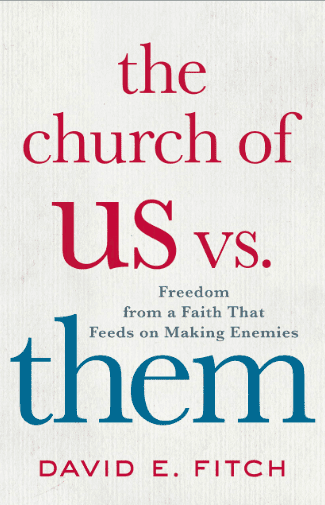 Ross Douthat, whose book Bad Religion I posted about on this blog, has been given some serious pushback by Diana Butler Bass, whose book Christianity after Religion I may well blog about too. (Here’s a recent post by Douthat linking to the others.) Two claims: Douthat thinks mainline Christianity’s demise is due to its lack of moorings in historic Christian orthodox faith, while Bass is making the counterintuitive claim that mainline liberalism’s theology may be the seedbed for a renewal of Christianity in America.
Ross Douthat, whose book Bad Religion I posted about on this blog, has been given some serious pushback by Diana Butler Bass, whose book Christianity after Religion I may well blog about too. (Here’s a recent post by Douthat linking to the others.) Two claims: Douthat thinks mainline Christianity’s demise is due to its lack of moorings in historic Christian orthodox faith, while Bass is making the counterintuitive claim that mainline liberalism’s theology may be the seedbed for a renewal of Christianity in America.
 Put in terms of accommodation, Douthat’s argument is that mainline Christianity has accommodated itself too much to culture, to progressive politics, to the trends of society and so has lots its footings. Bass is arguing that by accommodating itself to the culture, politics and society mainline Christianity might find a new way into a renewal. Douthat says Bass is over-reaching and thinks her hope is unlikely to find its realization.
Put in terms of accommodation, Douthat’s argument is that mainline Christianity has accommodated itself too much to culture, to progressive politics, to the trends of society and so has lots its footings. Bass is arguing that by accommodating itself to the culture, politics and society mainline Christianity might find a new way into a renewal. Douthat says Bass is over-reaching and thinks her hope is unlikely to find its realization.
The numbers tell the story of rapid and frightening decline among mainline denominations; the numbers tell of strength or at least of a sustainable future for the more conservative denominations (like the Southern Baptists) and the numbers are probably even stronger for the non-denominational evangelical.
Yet, there’s a problem at work here that belies simplistic theorizing. I doubt that one can wash away departure from the orthodox faith among mainliners and say it has nothing to do with the decline. At some point many have asked, “If that’s what these leaders believe, what’s the point?” But scholars know this is not the whole story. Some have pointed directly at birth rate among mainliners (amazingly low) compared with more conservatives (much higher), and said if you let these numbers stand for 2-3 generations you will see reversals, and that’s what happened: the conservatives have overtaken the mainliners. Yet, I suspect even this isn’t enough, so I’d like to propose for your consideration another factor to consider:
Both mainliners and conservatives have accommodated themselves to the culture. This isn’t an either/or.
Mainliners have accommodated themselves to the elite, sophisticated, and more upper class society.
Evangelicalism, or the conservative churches, have accommodated themselves to the populist culture.
There are more numbers for the latter than the former. Hence, one element of the demographic changes is “target audience” for accommodation strategies.
I have some ideas, but I’d like to know (1) if you think this thesis can be sustained and (2) what are indications of accommodation to elitist culture among mainliners and to populist culture among evangelicals?
To be sure, this isn’t absolute: there are number of intellectual evangelicals (Mark Noll, for example) and there are a number of more populist appealing mainliners (come to think of it, I can’t think of anyone really doing that, but I’m sure they are there; Marc Borg would not fit this rubric for me).
And, to complicate this picture, many evangelicals today who are more the intellectual types are shifting theologically away from the populist appeal to a more robust theology, and I see two groupings: one group, whom I like to call moderates, find their theology more in folks like Tom Wright, while the intellectual conservatives find their theology in TGC etc. Don’t kid yourself, we are witnessing in these trends — accommodation to populist culture, rejection of populist evangelicalism and moving toward folks like Wright and Piper — the crack up of the evangelical coalition. Billy Graham kept the more populist side happy while John Stott appealed to the intellectual side, but those folks are not the leaders of evangelicalism anymore.
A word now in defense of Diana Butler Bass’ rather large claim that perhaps among these mainliners — Christianity without religion — one will find renewal of the American church. I’m not alone in arguing this, but many think Protestant liberalism won over American culture as a whole, so that its values became so embedded in culture that one can no longer distinguish culture and mainline church culture. This may well lead to the demise of the mainline church because when one goes to church one gets more of what culture already offers. I’m inclined to think this thesis is stable. If this is so, Diana’s thesis/hope that among the mainliners today we are finding a “renewal” of the church may well be right: perhaps what we see now in mainline folks like Diana and her sketch is where American culture and American mainline church will be in two or three decades.










